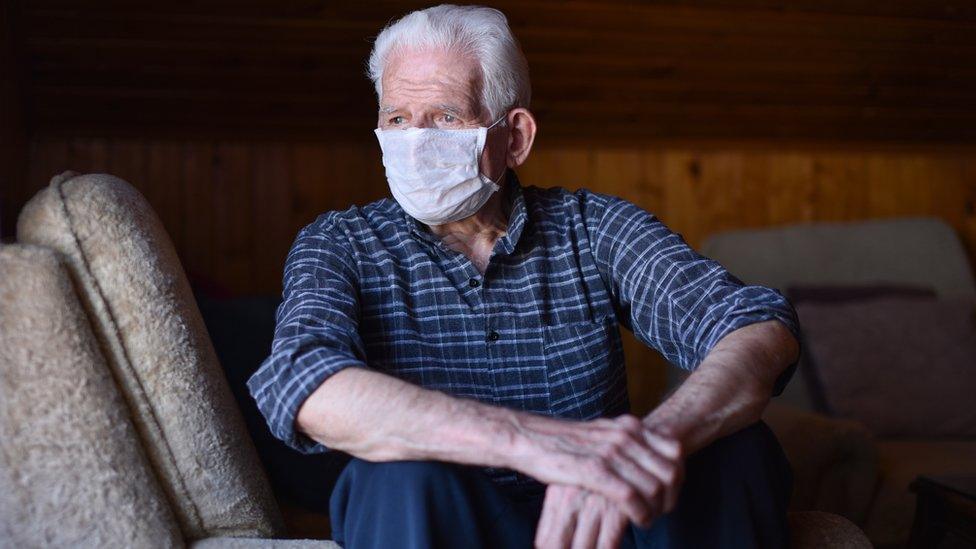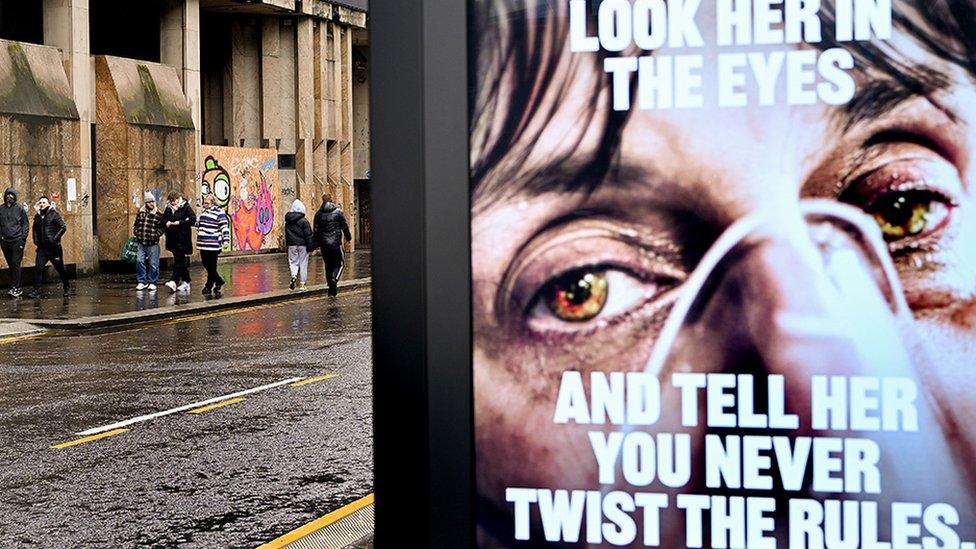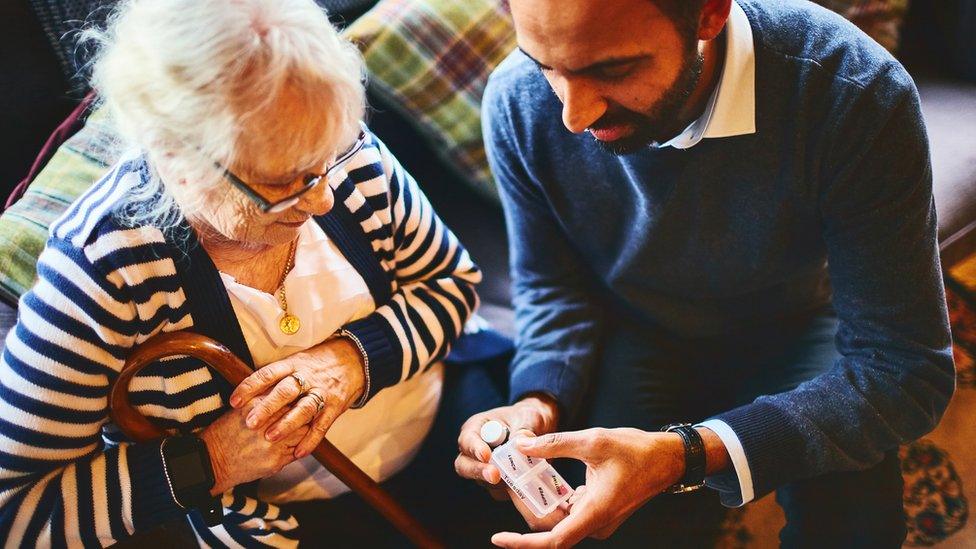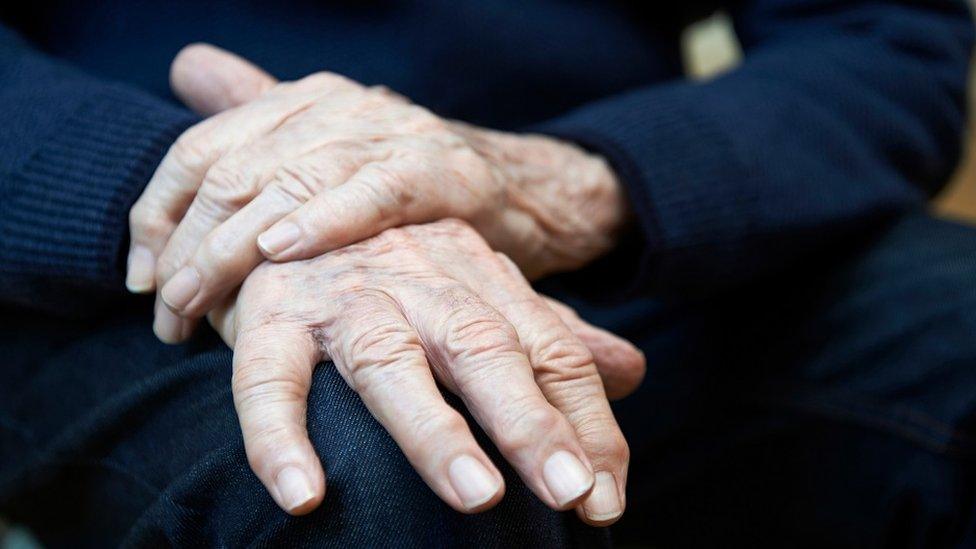Covid-19 continues to drive fall in life expectancy in Scotland
- Published

Life expectancy in Scotland has fallen for another year, with Covid deaths pushing the figure down, according to official data.
A report from the National Records of Scotland (NRS) showed the average life expectancy at birth for men was 76.6 years and 80.8 years for women.
This was a decrease on last year's figures which had been the sharpest drop since 1980-1982.
The NRS said Covid-19 deaths accounted for the majority of the fall.
Scotland's 2019-2021 life expectancy figures are the lowest in the UK when compared to other countries' 2018-2020 figures.
The NRS report, external noted the most recent figures were not yet available for the other nations.
In Scotland, the fall in life expectancy for men and women was about 11 weeks and eight weeks respectively compared to last year's report.
In 2018-2020, life expectancy at birth was 82.9 years for females and 79 years for males across the UK as a whole - around two years higher than Scotland's figures from the same year.

Deprivation continues to have an impact on figures, the NRS said.
In the most deprived areas of Scotland, average life expectancy for men was 13.7 years lower than in the least deprived areas. For women, the difference was 10.5 years.
Life expectancy was highest in the Orkney Islands and lowest in Glasgow City for both men and women in 2019-2021.
The report said most of Scotland's councils had seen life expectancy fall over the last few years, while life expectancy was higher in rural areas than in urban areas.
Separately, NRS population statistics suggested there were 1,040 people alive over the age of 100 in Scotland - the first time the figure has reached more than 1,000.
The number is up by 16% from the total at the same point in 2021, NRS said, and the majority (820) were women.
Respiratory disease
Between the early 1980s and early 2010s, life expectancy had increased in Scotland.
It began to plateau in 2012-2014 - mirroring the slowing down in improvements to circulatory disease mortality - before the figures dropped sharply in 2018-2020, again largely because of the Covid-19 pandemic.
Since 2017-2019, life expectancy has fallen by 33 weeks for males and 19 weeks for females.
Speaking on the most recent fall, the NRS's head of vital event statistics, Julie Ramsay, said: "Our analysis shows that Covid-19 deaths accounted for the vast majority of the fall in life expectancy for both males and females."

The report added there was also some contribution to the fall from other deaths, particularly drug-related deaths.
It said: "There were some causes of death that saw improvements in the most recent years, particularly respiratory disease and cancers.
"It's important to understand that people with these diseases are especially vulnerable to Covid-19. It is highly likely that some who died due to Covid-19 might have otherwise died of respiratory disease or cancer if the pandemic had not happened."
- Published3 February 2022

- Published14 August 2019

- Published8 February 2019
